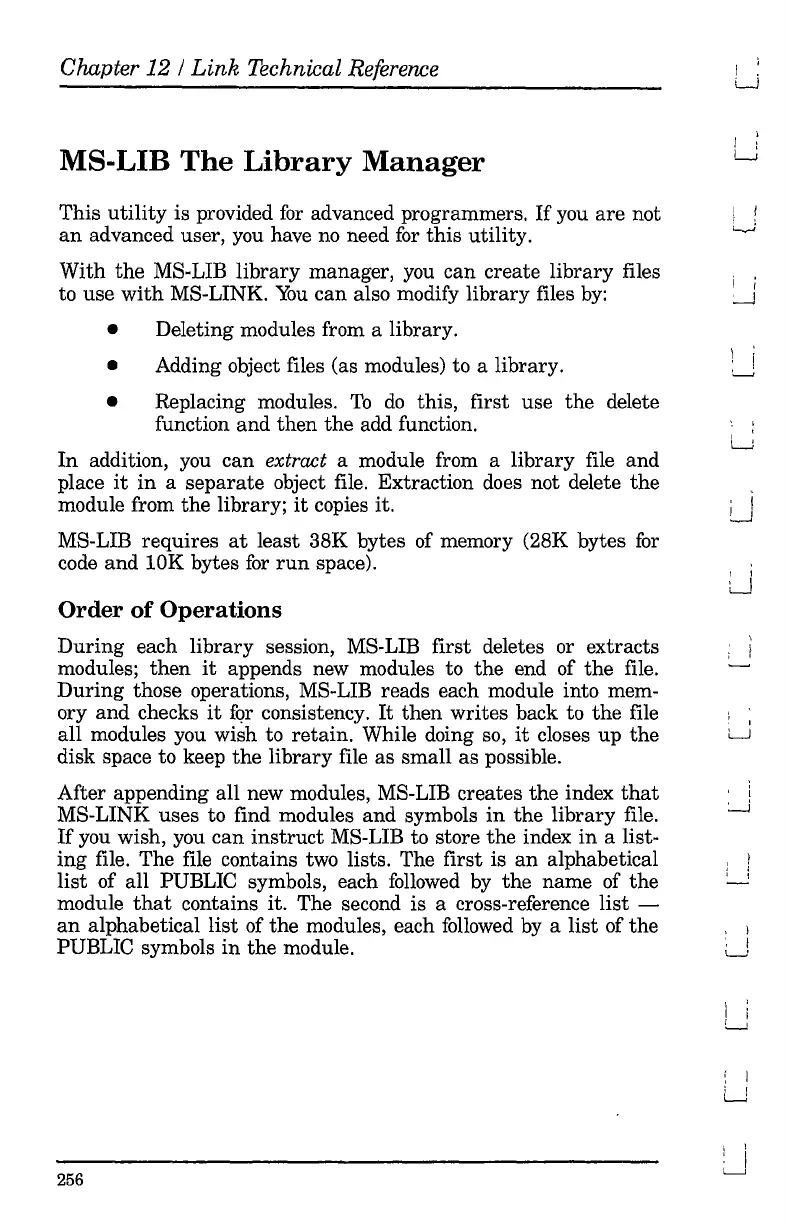•
•
Chapter
12
/
Link
Technical Reference
MS-LIB
The
Library Manager
This
utility
is provided
for
advanced programmers.
If
you
are
not
an
advanced user, you have
no
need
for
this
utility.
With
the MS-LIB library manager, you can create library files
to use
with
MS-LINK.
You
can also modify library files
by:
• Deleting modules from a library.
Adding object files (as modules) to a library.
Replacing modules.
To
do
this, first use the delete
function and then the add function.
In
addition, you can extract a module from a library file and
place
it
in
a
separate
object file. Extraction does not delete
the
module from the library;
it
copies it.
MS-LIB requires
at
least 38K bytes of memory (28K bytes
for
code and 10K bytes
for
run
space).
Order
of
Operations
During each library session, MS-LIB first deletes or extracts
modules;
then
it
appends new modules to the end of the file.
During
those operations, MS-LIB reads each module into mem-
ory
and
checks
it
fQr
consistency.
It
then writes back to
the
file
all modules you wish to retain. While doing so,
it
closes up
the
disk space to keep the library file as small as possible.
After appending all new modules, MS-LIB creates
the
index
that
MS-LINK uses to find modules and symbols
in
the
library file.
If
you wish, you can
instruct
MS-LIB to store
the
index
in
a list-
ing file. The file contains two lists. The first is
an
alphabetical
list
of all PUBLIC symbols, each
followed
by
the
name of the
module
that
contains it. The second is a cross-reference
list
-
an
alphabetical
list
of the modules, each
followed
by
a
list
of the
PUBLIC symbols
in
the module.
256
!
~
L.J
j I
LJ
i i
----J
\ :
, I
'---'
, ,
, I
U
I
U
, I
, I
L-1
I :
, I
-----J
: I
U
i I
LJ
